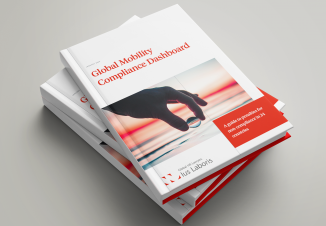
After 12 months of working in Finland, posted workers will be subject to the provisions of the applicable collective agreement concerning various types of compensation and financial benefits in addition to the provisions on working time, annual leave and occupational safety. Provisions on the conclusion and termination of the employment contract and on non-compete clauses and occupational supplementary pension schemes will, however, still not apply to posted workers.
This 12–month period may be extended by a maximum of six months. The posting company must notify the extension electronically to the labour protection authority before the end of the 12-month period. The reasons for the extension must be included in the notification.
When calculating the 12-month period, the working time of the posted worker previously posted by the employer must be taken into account, if the posted worker later was posted to perform the same work at the same place as the previous employee. In this situation, the employer must inform the posted worker, at the latest before starting work, that the posted worker referred to above replaces a previous posted worker. When determining if the work is considered to be same and performed at the same place, the following aspects should be examined: the nature of the service to be provided, the work to be performed and the address of the workplace.
Allowances paid to a posted worker are considered to be part of salary if they do not relate to the actual costs of the posting. However, if the conditions of employment do not specify whether the allowances are based on actual costs, the allowances must be considered entirely as compensation for expenses and not as wages or salary.
The amendment also introduces a protection provision according to which travel and accommodation costs related to the posted worker’s posting to Finland will be covered if not reasonably compensated by the law, standard practice or employment contract of the country of origin. If a posted worker is temporarily posted from his or her usual place of work in Finland to another place of work in Finland or abroad, or between places of work in Finland, travel, accommodation and meals incurred during the posting are compensated according to a generally applicable collective agreement or another collective agreement that binds the posting company. This compensation for expenses is not considered as part of salary.
The salary paid to the posted worker in subcontracting and intra-group transfers must cover at least the mandatory parts of salary in accordance with the applicable collective agreement. If there is no applicable collective agreement, the posted worker must receive a salary considered ‘normal and reasonable’. The employer’s right to set off receivables against a posted worker’s salary is set at one third of the posted worker’s net salary.
Notification of the posting of workers to the labour protection authority must in future contain the information necessary to identify each posted worker. Failure to do so may result in a negligence fee of EUR 1000 to EUR 10,000.
The user company must, as before, provide the sending company with the information it needs to fulfil its obligations as an employer in temporary work. The Finnish user company must also inform the temporary work agency in advance if the temporary agency worker will be working under the management or supervision of another company in Finland or abroad. This obligation also applies to situations where an employee is posted to work abroad in another of the user company’s work sites.
The same accommodation quality requirements will be applied to posted and local workers.
The Act entered into force on 1 December 2020. A 12-month transition period applies to agreements concluded before the entry into force of the Act.


